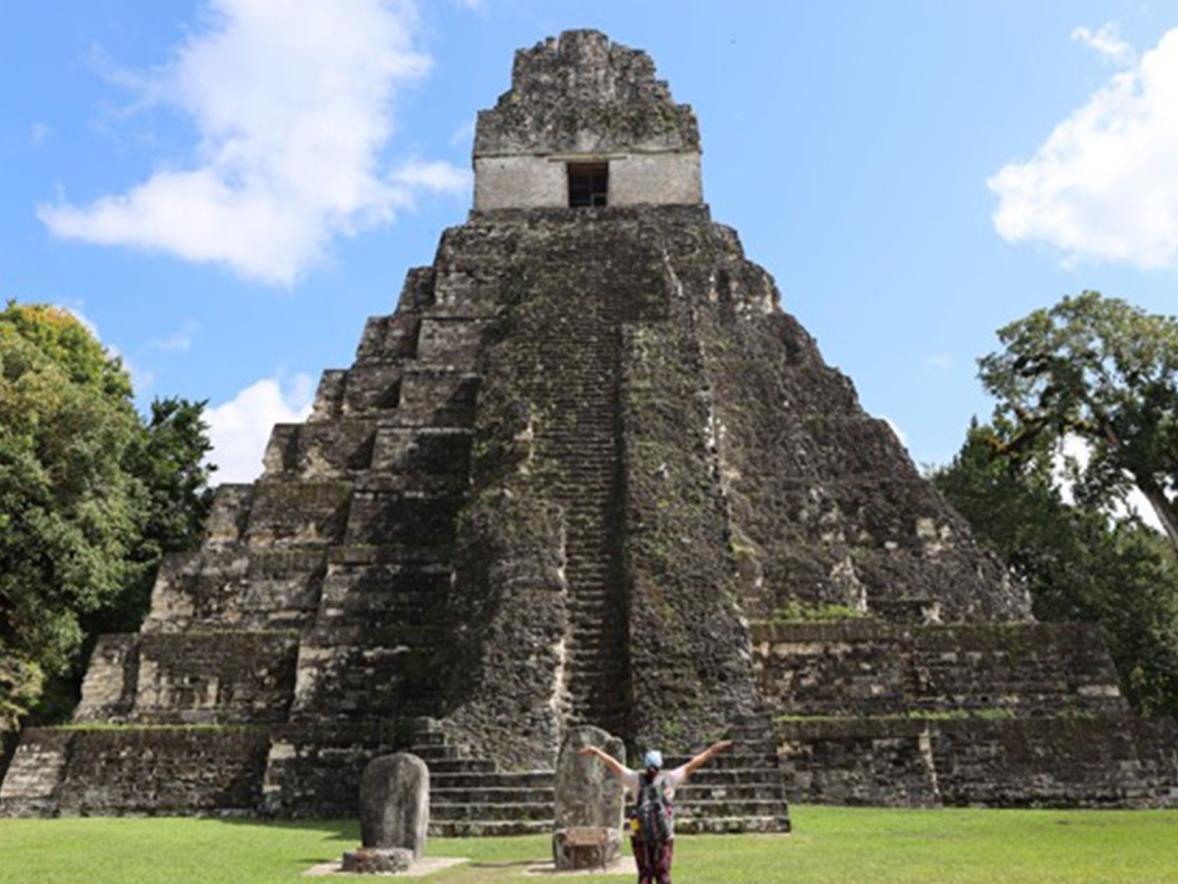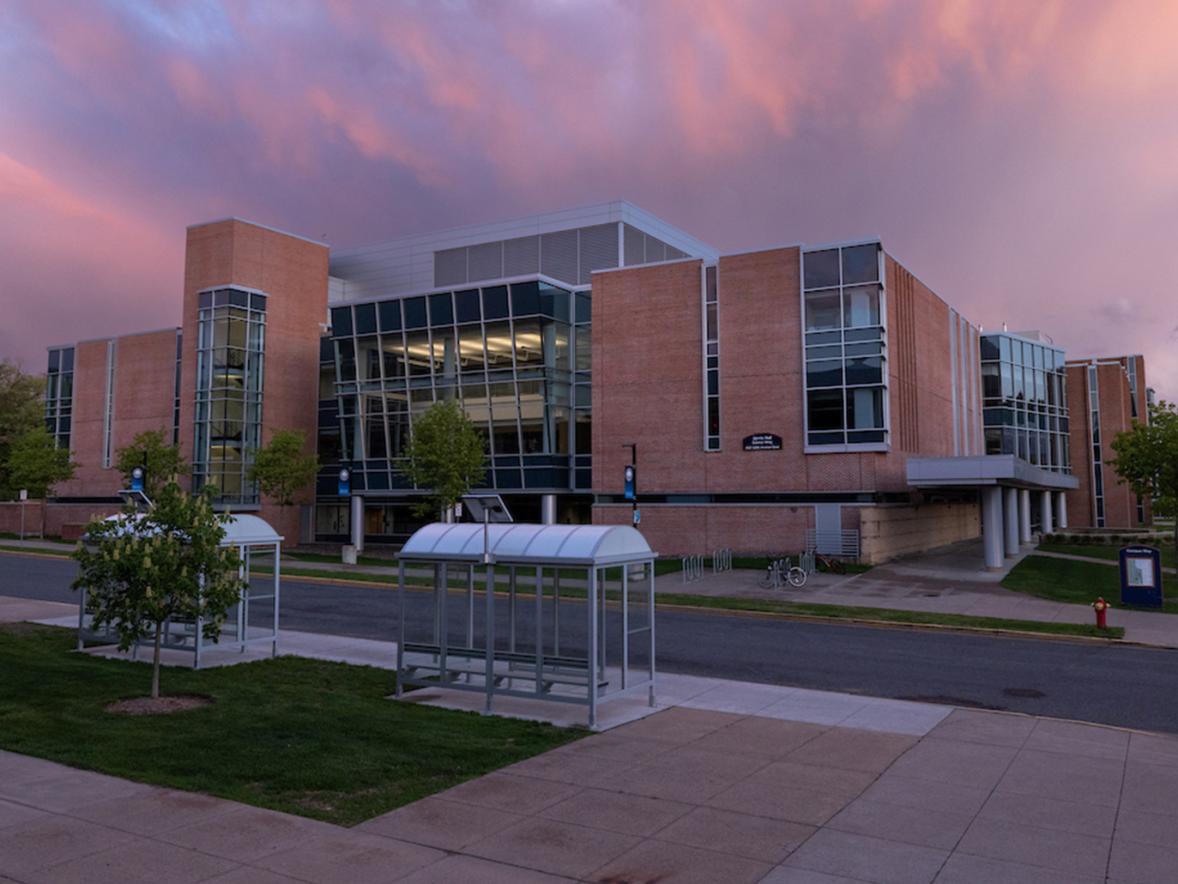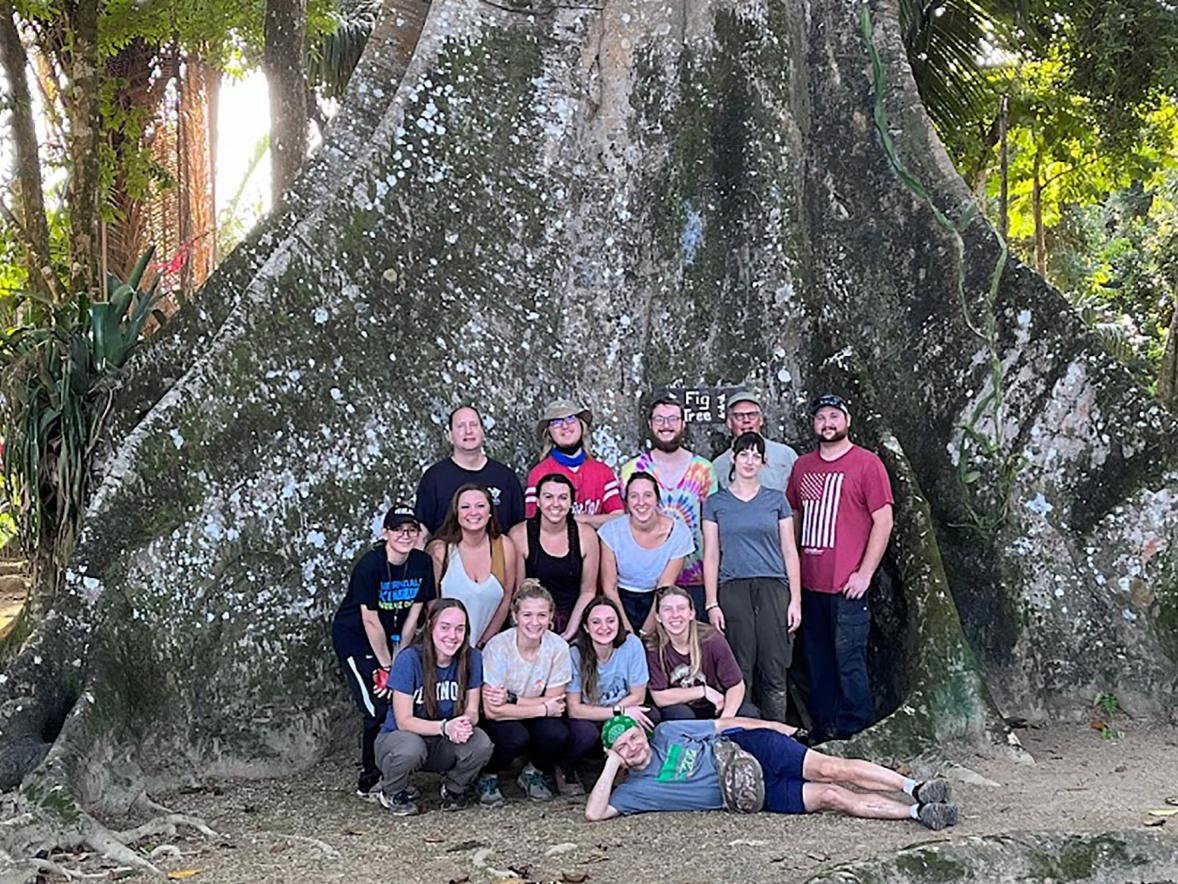UW-Stout's 100% online Professional Science Master's (P.S.M.) in Conservation Biology degree combines flexible coursework and a diverse research focus to pursue careers in business, industry, government, and nonprofit agencies that address the human impact on threatened and endangered species, habitats, and ecosystems around the world.
Our nationally recognized faculty will train you to understand, evaluate, and communicate conservation practices in ecology, biodiversity, fisheries, watershed management, native species and habitats, global climate change, environmental laws and regulations, and natural resource management.
100% Online: Complete Your Degree at Your Own Pace and Schedule.
Career-Defining Curriculum
Our graduates work as professionals in conservation biology, environmental science, cellular and molecular biology, aquatic and marine science for public and private businesses, government agencies and nonprofit organizations.
The unique 18-month distance-learning program prepares you to:
- Articulate the causes and consequences of anthropogenic disturbances on biodiversity
- Research and critically interpret scientific literature to formulate hypotheses
- Develop scientific foundational knowledge of current issues and problems
- Apply contemporary analytical and experimental design techniques
- Analyze and predict responses of biological communities to past and future disturbances
- Assess the potential of conservation strategies to help protect biodiversity
- Organize and work with diverse stakeholders to address environmental concerns
Use the Request Information form to receive a program summary and learn more about the Professional Science Masters (PSM) degree in Conservation Biology.
Request Information
Customized Tuition & Fees
UW-Stout degree programs using the all-inclusive customized instruction model are designed with the adult learner in mind. Other universities will present costs and value differently, so make sure you're comparing apples to apples. If you're comparing UW-Stout's online degree customized instruction (CI) tuition to our competitors, keep in mind:
- Customized instruction tuition rate includes the textbook rental fee.
- There are no additional or hidden university-based semester or technology fees.
- Students in customized instruction programs pay the same rate of tuition regardless of where you live--Wisconsin, California, Texas, or in a foreign country.
More Value for Your Money
Customized Instruction also provides:
- Program Director/Coordinator: Faculty with academic and industry expertise.
- Student Services Advisor: One point of contact, providing dedicated support throughout your degree program.
- Course Sequences & Matrices: Plan ahead with clear program outlines so you know what courses are offered when.
- Stackable Courses & Programs: Many of our courses and certificates can be applied to our degree programs.
- Flexibility: Courses are designed to offer the flexibility and convenience working professionals need to get ahead in their careers without sacrificing their current income and responsibilities.
General UW-Stout Graduate School Application
All prospective graduate students at UW-Stout must follow a standard application process through our Graduate School. Beyond that, each graduate program has specific requirements that must be met to be successfully admitted to the program:
Program-Specific Application Requirements
Eligibility
To be admitted to the P.S.M. Conservation Biology program, you must:
- Hold a bachelor’s degree in biology, environmental science or a science-related field from an accredited institution.
- Have earned a GPA of at least 3.0.
Those with a non-science related degree may be admitted if one of the three following conditions are met:
- Completion of minimum competency course(s) with a grade of B or better,
- Evidence of equivalent courses,
or - Evidence of professional knowledge in this area.
Program Objectives
A key distinction of the Professional Science Master's degree program is the combination of rigorous scientific theory and skill with training and experience in management and communication skills necessary for a successful professional career. Graduates of the program will have advanced scientific skills and will be able to work effectively with business and industry.
The program combines a rigorous science curriculum with other opportunities to prepare graduates who will demonstrate:
- strong communication skills in writing and oral presentation,
- project management skills,
- a multi/interdisciplinary understanding of organizational goals (e.g., profits, missions),
- a familiarity with the commercialization profession,
- the transfer of knowledge into process or process innovation, and
- a deep understanding and application of ethical considerations.
Learning Outcomes
Graduates of the program will be able to:
- Explain the importance of biodiversity conservation
- Articulate (via written and oral means) the causes and consequences of anthropogenic disturbances on biodiversity
- Contrast different viewpoints from diverse stakeholders, including industry stakeholders, as they relate to conservation issues
- Research and critically interpret scientific literature to formulate hypotheses and develop a strong working scientific foundational knowledge of current issues and problems
- Apply contemporary analytical and experimental design techniques
- Analyze responses of biological communities to past disturbances
- Predict responses of biological communities to future disturbances
- Assess the potential of conservation strategies to help protect biodiversity
- Recommend possible mitigation strategies
- Organize and work with diverse stakeholders to address environmental concerns
Advisory Committee Members
| Sara | Anger | Career Development Manager, Career Services | UW-Stout |
| Christina | Basch | Noxious Weed Eradication Specialist | Minnesota Department of Agriculture |
| Michael | Bessert | Professor; Program Director | UW-Stout |
| Julie | Beston | Assistant Professor | UW-Stout |
| Daniel | Freedman | Dean, CSTEMM | UW-Stout |
| Keith | Gilland | Assistant Professor | UW-Stout |
| Sarah | Hagedorn | Animal Facility Manager, Department of Biology | UW-Oshkosh |
| Bill | James | Distinguished Scientist, Center for Limnology Research & Rehabilitation | UW-Stout |
| Innisfree | McKinnon | Associate Professor | UW-Stout |
| Lindsay | Olson | Water Quality Specialist | Dunn County Division of Land and Water Conservation |
| Buzz | Sorge | Lake Management Planner (Ret.) | Wisconsin DNR |
| Rob | Strand | Forester | Wisconsin DNR |
| Ka Ying | Vang | Soil Conservationist | USDA - Dunn County |
| Anna | Varian | Environmental Scientist | Stantec |
| Jay | Walker | Executive Director | Great Lakes Aquarium |







